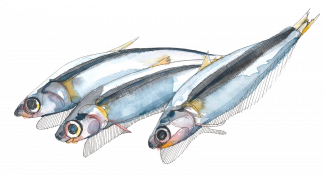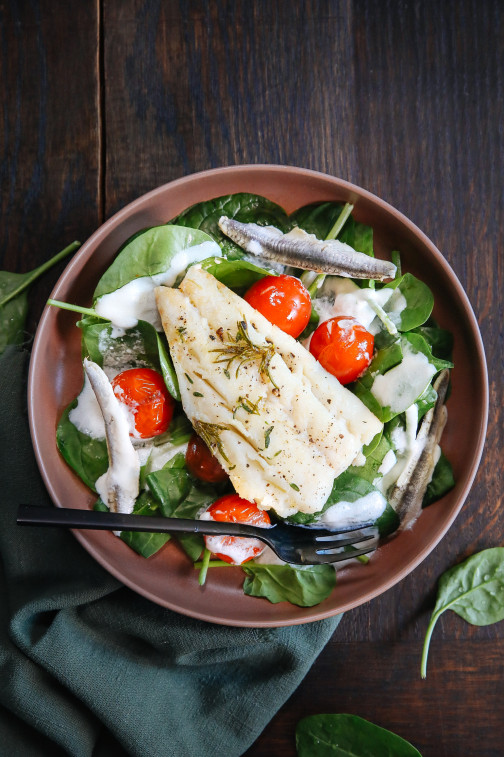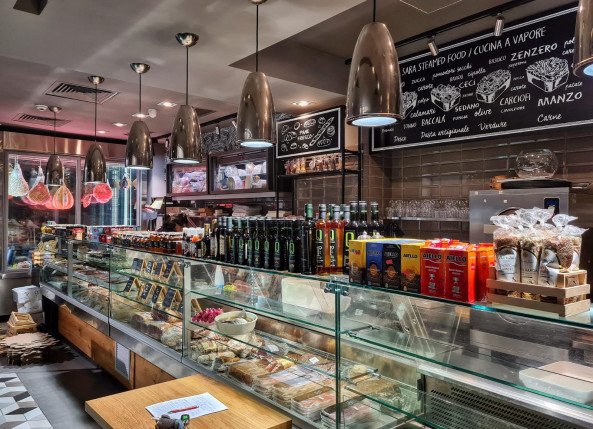- 4 fillets of baccalà (salt cod)
- 600 g Corbarino tomatoes from the Lattari Mountains
- 12 anchovy fillets
- 1 head of garlic
- 200 ml of milk
- 20 ml extra virgin olive oil
- Rosemary
- Thyme
- Salt and pepper

- Baccalà is cooked "oliocottura" (cooked in oil at a low temperature for a long time) in extra virgin olive oil, rosemary and thyme at 60 degrees for 20 minutes.
- The Corbarino tomatoes must be cooked separately in olive oil for 10 minutes.
- To make the garlic cream, the garlic must be cooked in the milk over a low heat for 20 minutes and then mixed to achieve an emulsion.
- Regenerate the baccalà in steam and serve on a bed of Corbarino tomatoes, together with 3 anchovy fillets, garlic cream and a sorrel salad.
Tips and tricks:
Before being cooked, the baccalà must be rehydrated and rinsed for two or three days.
Baccalà is a traditional Portuguese product that has been naturalised in Italy. It is Atlantic cod that has been salted and dried. This ancient recipe for preserving cod was seen as the basis for cooking fish in central southern Italy and Veneto.
Did you know?
Cod is a fish that is rich in proteins, iron, sodium and vitamin D. Cod liver oil, which is often used as a food supplement, can also help to improve your natural immune response since it is an important source of Omega 3 and vitamins A and D.

Nutritional advice
byINSP (Institutul National de Sanatate Publica – Romanian National Institute of Public Health)
Although it is a lean fish, cod, like many other fish, is a source of omega 3 (essential fatty acids). Our bodies need omega-3 fatty acids, but cannot produce them ourselves, which is why it’s essential that you have these fats in your diet. Getting enough omega-3 fatty acids in your diet can help reduce triglyceride levels (a type of bad cholesterol).
Cooking at a low temperature preserves the nutritional value of the food since it prevents the loss of the most sensitive nutrients at high temperatures.




